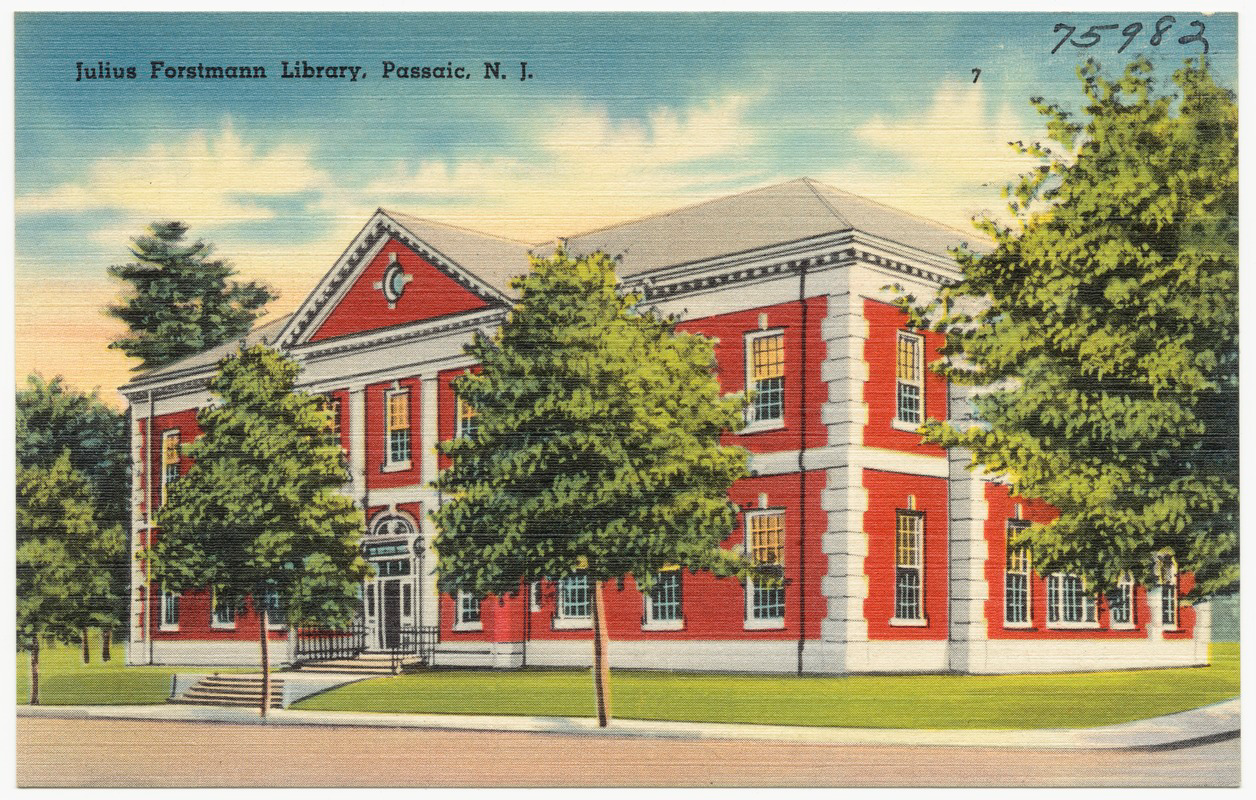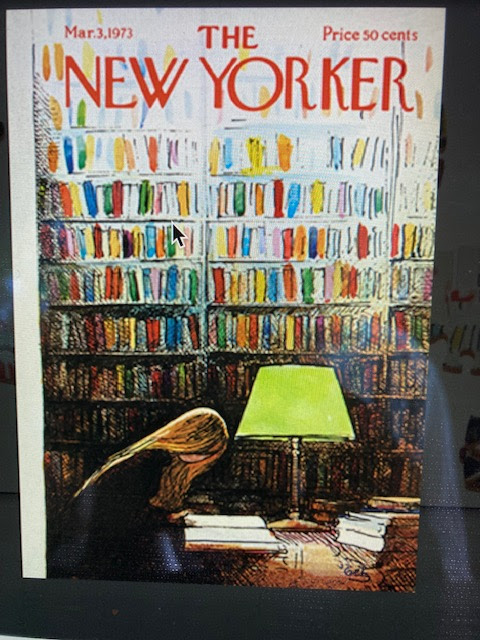The Art of Wasting Time - Loitering in Libraries - a Memoir
I recently found myself engaged in conversation with a friend, who views most life experiences, cerebrally. She is the one to whom I turn when I seek logic – the one who cuts through the mundane in place of solid reasoning. I rely on her to rein in my spontaneity – show me the practical ropes – convince me that my rose-colored glasses serve no purpose other than to amuse or distract. I appeal to her judgment when my imagination runs amok, and I am in need of a jolt of wisdom over whimsy. She is the Yin to my Yang, the voice of reason in a world slightly off-kilter. If I am the incurable romantic, she is steadfastly immune to fantasy.
And so, when I told her I was off to the library for the second time today, her response was:
“Why? Didn’t you find what you wanted before?”
“I found exactly what I wanted,” I say. “I’m simply going back to inhale.”
A pause.
“What are you talking about?” she asks. “I don’t get it.”
Of course she doesn’t “get it.” Hard-core realists don’t dwell in spectral spaces where all sense of argument and reason fall away. She cannot grasp the pleasures of unabashedly wasting time for no other purpose than it feels good to wander for a bit in a kind of somnambulant state, and succumb to the frivolous allure of inhaling library scents, for example.
“Meanderers” such as I understand why walking through the stacks, lingering among the literati or sitting in a chair surrounded by books, nourish the soul, and are necessary components to one’s well-being. We did not, after all, earn our “meanderer” title by being reality-tested when flights into fancy are so much more compelling.
I recall the first time I entered a library. I was about four when my mother and I walked up to a large brick building of the Passaic’s Gregory Avenue’s Julius Forstmann Library, whose entryway was framed by parallel rows of blue hydrangeas leading up to two white pillars aligning the stately door.
“You’ll need to be very quiet,” my mother said. “No one is allowed to talk inside a library.”
I was, at once awed and slightly frightened. I didn’t know what to expect. On some level, what I was about to encounter seemed analogous to a religious experience. And, in a way, that’s exactly what it was: walking through those great doors was a rite of passage – a shrine to all the books I would ultimately come to know and grow to love through all the years of my childhood, and beyond.
The children’s library in my small Passaic hometown had a librarian, who was tiny and prim, and despite her elf-like appearance, was quite stern. I once laughed too loudly and she shot me a look which resonates still.
“This library is hallowed ground,” she said.
Even today, when I am inside a reading room and voices are raised, I think of how she would lift her eyebrows, peering above her glasses, ready to pounce.
Passaic’s Julius Forstmann Library had wooden filing drawers. Books were signed out with a date stamp attached to a pencil, pressed onto an ink blotter and marked on the inside cover. Borrowing a book was a thrill. I brought my selections up to the main desk where I was told, under penalty of death - or so I imagined - not to forget to bring them back on time.
The upstairs children’s area was a large, airy space where I spent hours reading Babar the Elephant books, seated under revolving ceiling lamps with Mother Goose characters and other literary figures circling those lighted domes. It was a magical place, this room where I spent endless amounts of time reading my favorite authors and watching the afternoon sun fade on the covers of Make Way for Ducklings, Little Toot, Peter Rabbit, A.A. Milne, and the like. I was on intimate terms with Winnie the Pooh and Christopher Robin, who became my BFFs.
Perhaps, it was those early halcyon library days that paved the way to my love of books and my desire to write. Or maybe, it as the aroma of the room and the hum of the fans in summer. and the radiators banging in winter, that made it feel so comfortable and safe. I only know this: even now when I am inside a library or a bookshop, I am at peace. My senses are stirred: the feel, smell, and sounds of pages being turned, inspire me. Plant me in a room filled with books and I have come home.
I have a recurring fantasy: I am locked inside a library overnight with no means of escape. I am surrounded by all the literary figures I have grown to know intimately, for reading, after all, is an intimate experience. All through the night I move among them, prowling the stacks. I share an hour with Agatha Christie and Charles Dickens. I move among the dusty pages of Emily Dickinson, Tolstoy and Kafka. I mingle a while with Thomas Wolfe, Ayn Rand, Irwin Shaw, Hemingway and the rest of the gang. I stop for a read with Updike and Cheever. I laugh with Calvin Trillin and cry with Annie Dillard. When I am tired, I close my eyes, curl up in a stuffed chair and fall asleep with Shakespeare.
Sadly, with the arrival of a new millennium, independent bookshops are a dying breed. Large bookstores which once sprouted up all over like literary McDonald’s have now been pushed aside by Amazon. Vital information spills out at us in minutes without having to rely on humans to assist us. But for me, the reading rooms and small bookshops I keep searching for, hold a certain enchantment. There is still awe in stumbling upon a book long out of print and suddenly rediscovered on somebody’s shelf. Literary characters have become my friends. I love the voyeuristic feeling of falling upon annotated margins penciled in on coffee-stained pages. I miss the Passaic librarian, who ruled her roost of noisy children with a “shush” that practically pierced the walls.
My grandchildren, Andrew and Caroline, have grown up in a new time. They are new millennium kids who reap the rewards of high technological living. In the process, I must take care to teach them what lies inside the hearts of books; the secret crannies where they can hide away and discover magical worlds that cannot be found on computer screens.
And so, I waste time loitering in libraries – a sublime pitstop, much in the way that “Happy Hour” seduces those who seek solace through a boozy haze of camaraderie and conversation.
Libraries excite the senses. Here, we can dwell among those who came before us – the authors past and present - who fuel the fires of creativity, welcoming us in to their silent worlds.
Today, the air is thick with smells of musty tomes, and inky, annotated margins in which random readers felt inclined to pen a thought. I inhale the perfume of the past, and am heady from the scents of cracked leather hides and crusty brown pages slightly tinged with mold.
I tell this to my friend, and she is momentarily riveted. But she is involved with worldlier ventures like putting out corporate fires, negotiating deals and working the crowd. She is a well-oiled machine designed for power plays and mental gymnastics.
While she is off running the world, I sit in my favorite Westport Library chair, looking out at the river, reflecting on the simpler pleasures of life. I abandon reality for the moment to slink off into the dark recesses of my mind.
A week later, she phones. “Want to do lunch?” she asks. “I can squeeze you in between meetings.” I accept on the spot, surprised by her sudden serendipitous availability.
We sit over our salads, she, in her designer outfit and well-coiffed hair, brimming over with excitement on having sealed a deal that will guarantee her future success.
I tell her about the latest book I’m reading, and how I am stuck on a passage in my own book that I am writing. “My characters aren’t behaving themselves,” I inform her. “The writing is feeling sluggish today. I’ve reached an impasse.”
“Perhaps, it’s time for those rose-colored glasses,” she teases.
This friend and I enjoy each other’s company. The bond between us is strong and enduring. We flourish despite our divergent interests.
She fills me in on her latest project that will earn her the big bucks, complaining that life on the fast track is once again, apres-pandemic, spinning out of control, and she hasn’t had a good night’s sleep for ages.
I am awed by her determination and business savvy. She is soon off to her next appointment while I am back to my writing; she, scurrying fast so as not to be late. She vanishes out of sight as I trip slothfully through the afternoon, while the joy of doing nothing at all washes over me, and lulls me into a satisfying state of delicious inertia.
Judith Marks-White

Julius Forstmann Library Passaic

Inside of Julius Forstmann Library

The New Yorker Magazine Cover March 3, 1973
